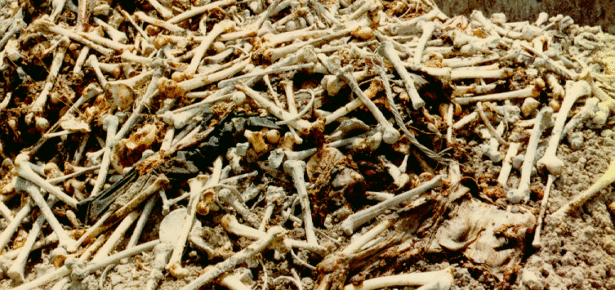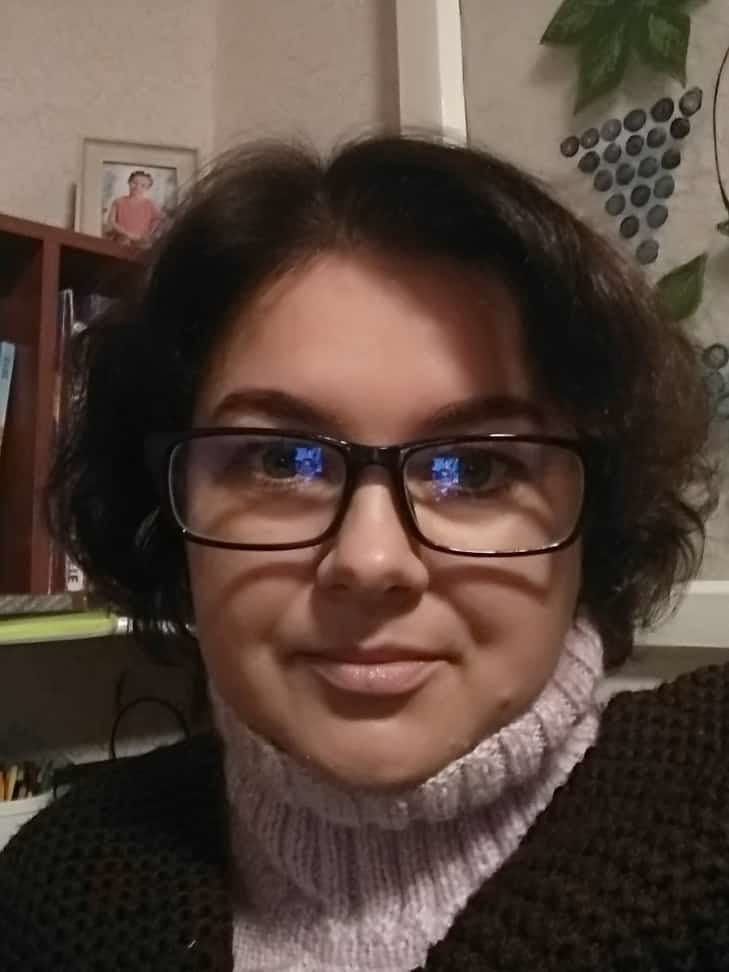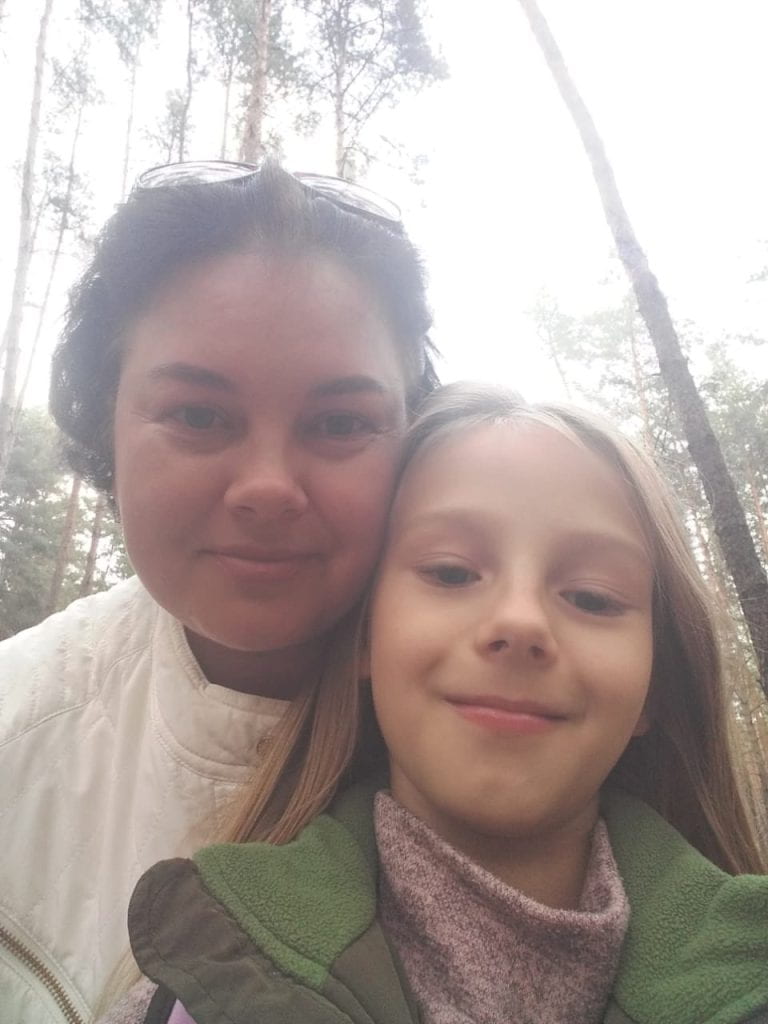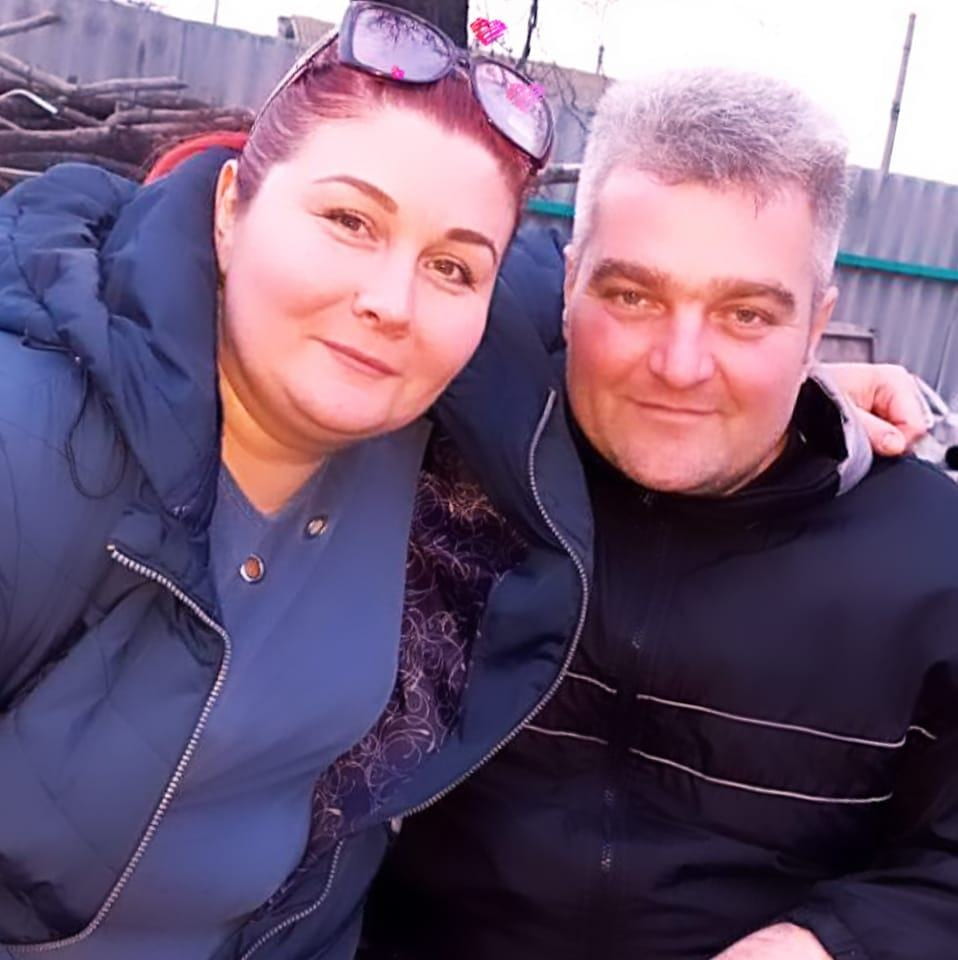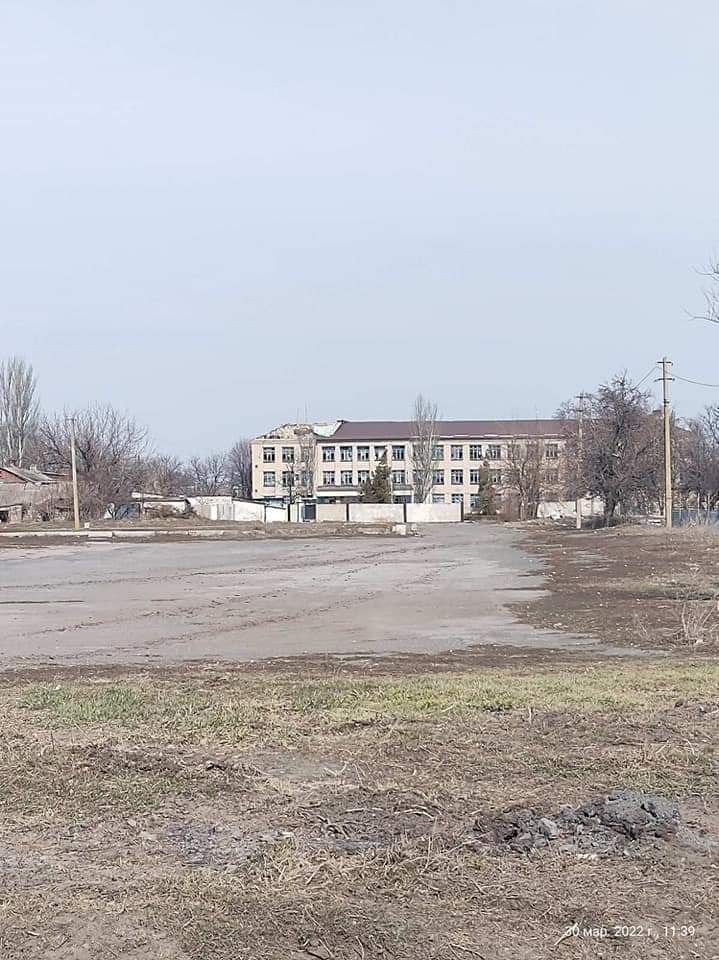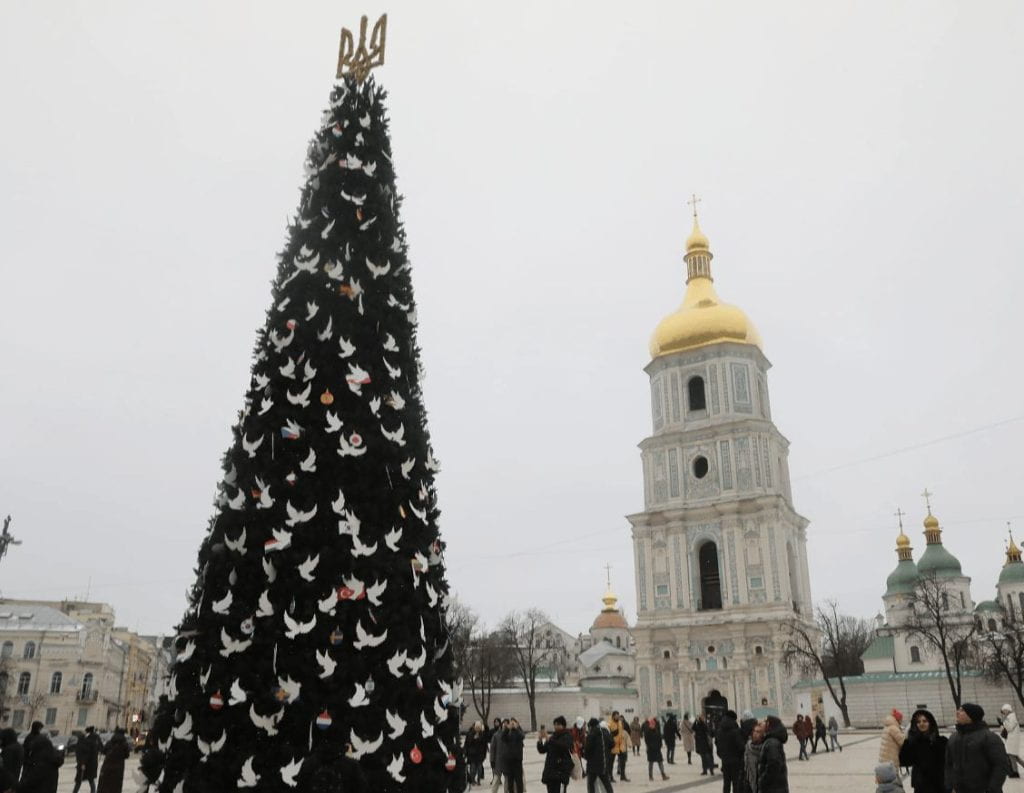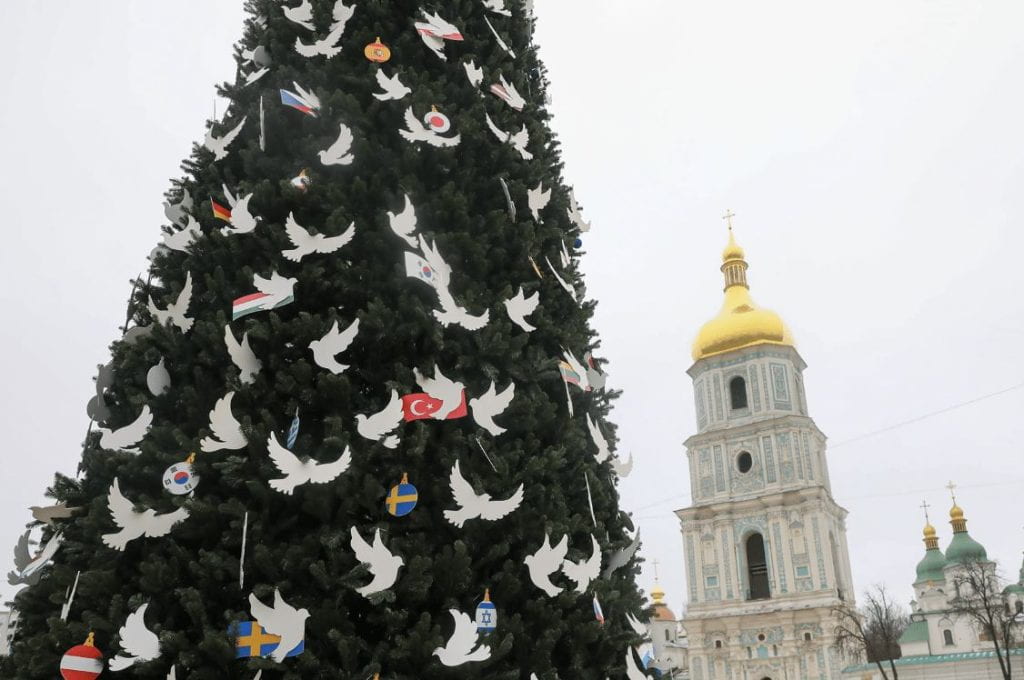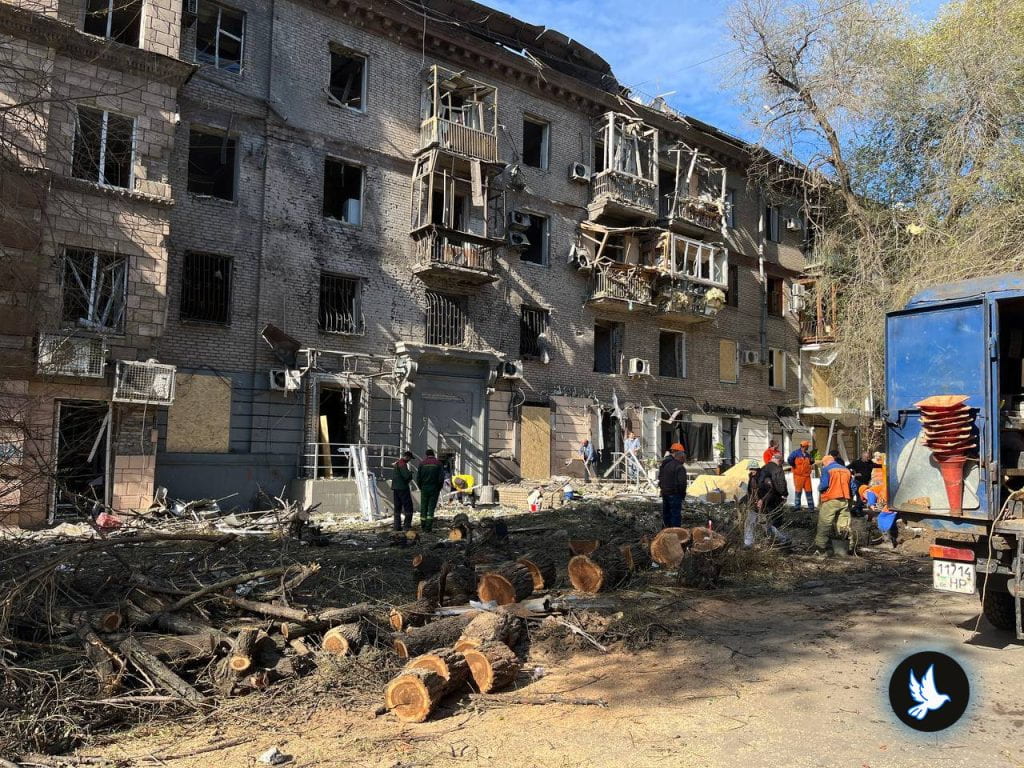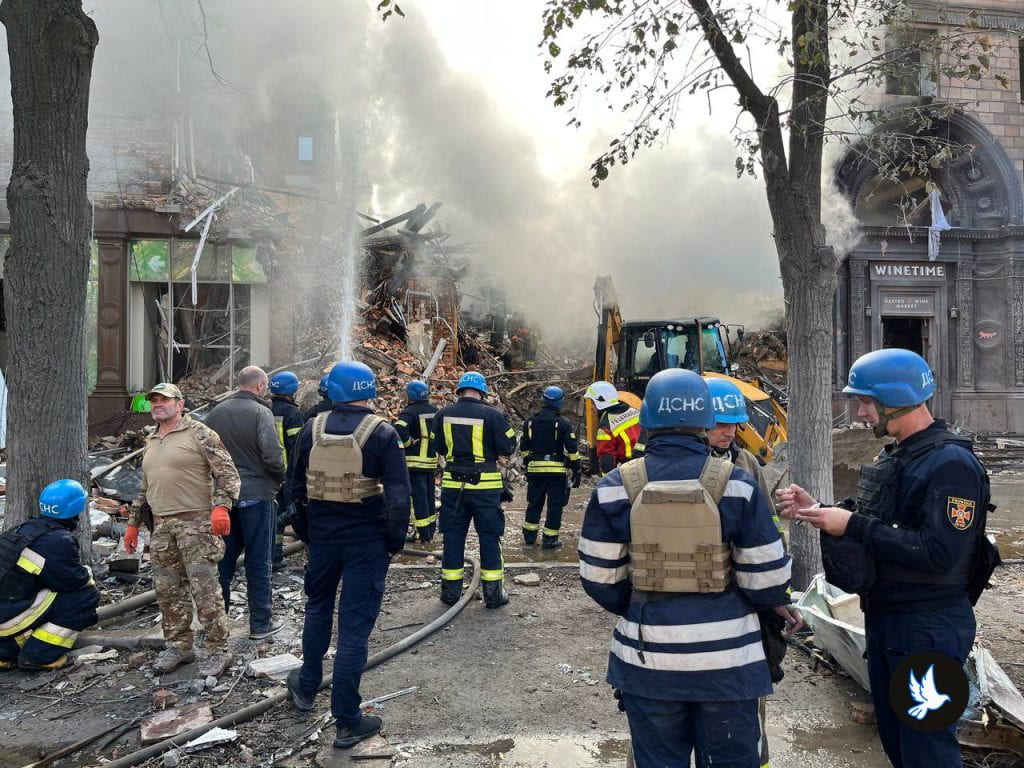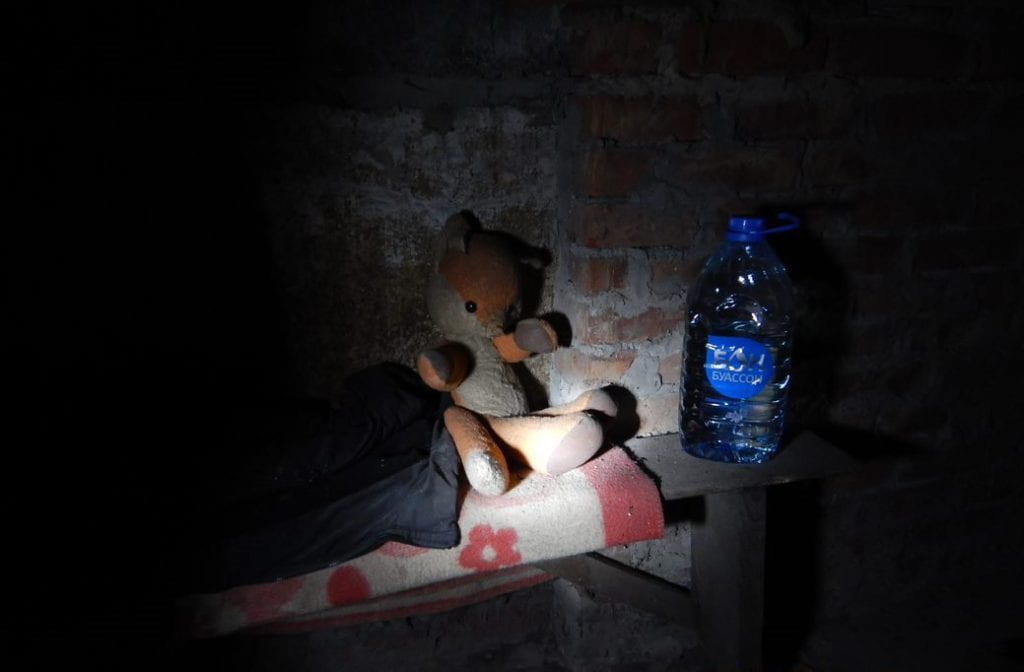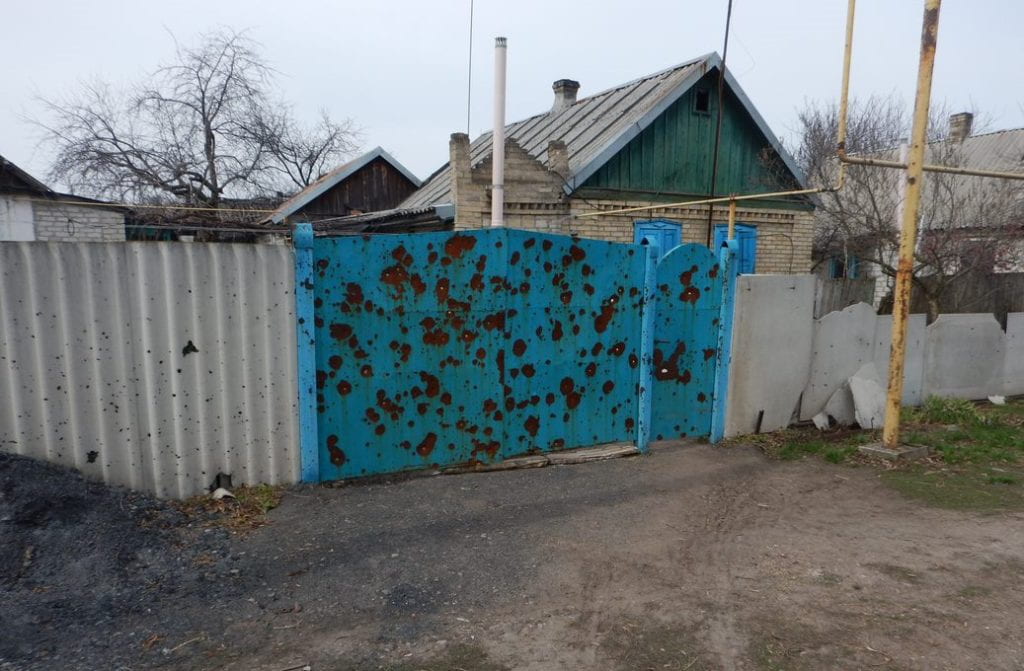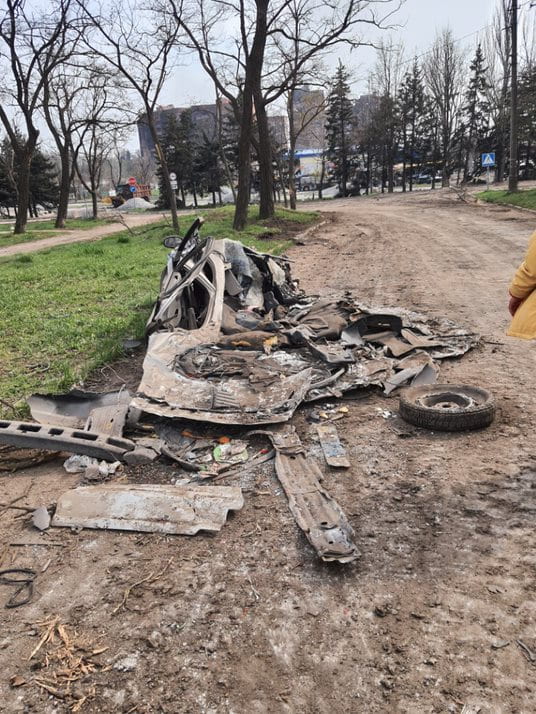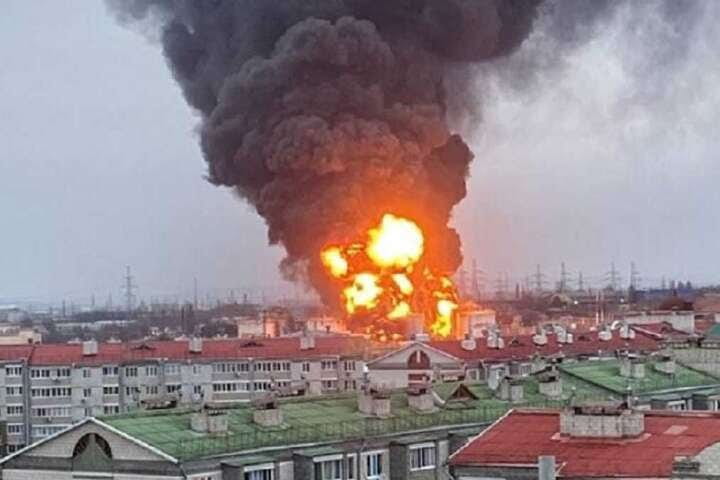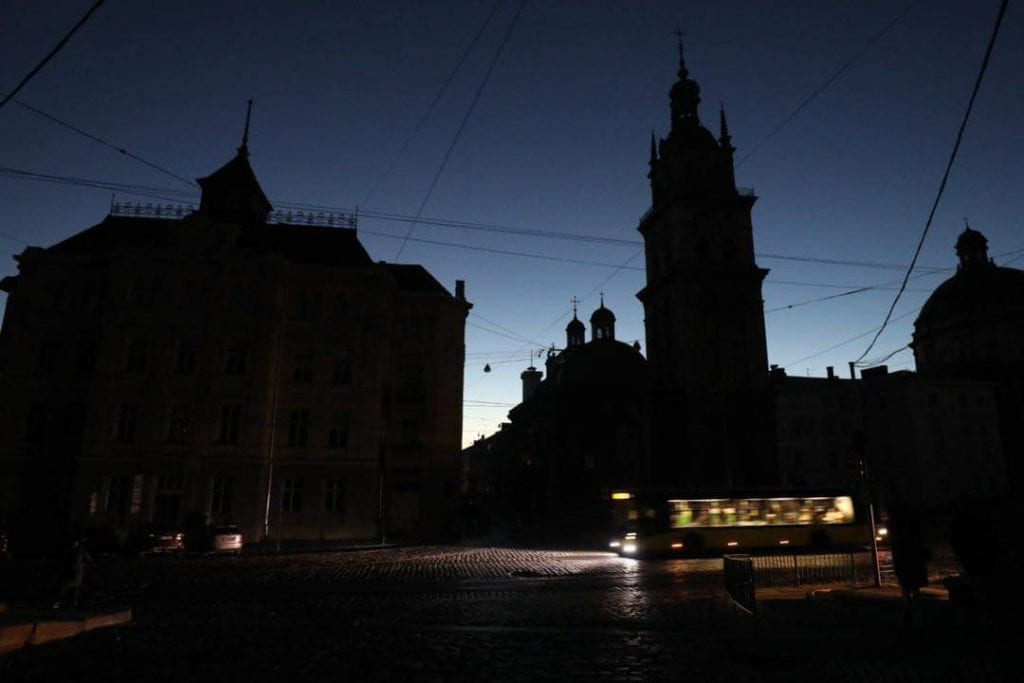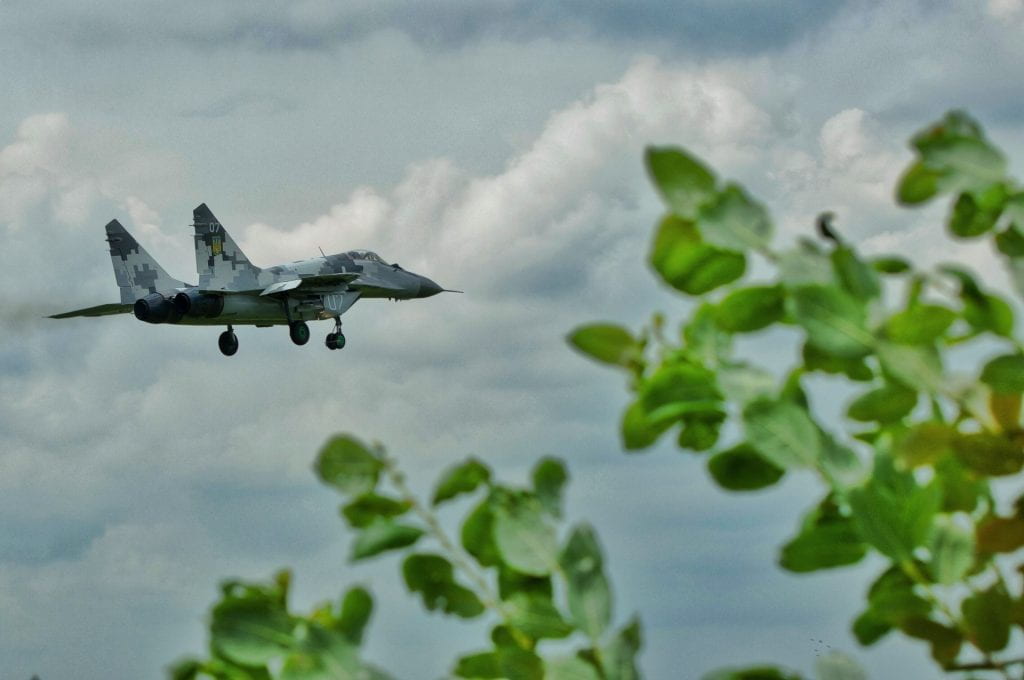From the journal Eastern European Holocaust Studies
Roundtable organized by Eastern European Holocaust Studies and the Johannesburg Holocaust and Genocide Centre took place on the 25th of April, 2022 with the technical support of Yana Ustymenko, Daniella Hovsha, and Borbala Klacsmann. The transcript was edited by Yana Ustymenko.
The event was chaired by Andrea Pető, professor at the Central European University (Vienna) and the Editor-in-Chief of the Eastern European Holocaust Studies journal. Participants were asked to reflect on what this “Never Again” means for them, their research, the Holocaust research, and for the present war against Ukraine.
Ruslan Kavatsiuk: I am now, most probably, joining you for the last time in the role of Deputy CEO of the Babyn Yar Holocaust Memorial Center, as I’m resigning from this role at the end of the week. For me, this event is a way to start a conversation and thank you for all the work that you do.
The war that started at the end of February, with a very active attack on Ukraine by Russia, has unfolded as crimes against humanity. It definitely helped me understand better the value of what you all and the community of Holocaust researchers do and the importance of your work. Of course, thank God, what is happening in Ukraine, is not something that can be called anything close to the Holocaust, and I hope that it will never be the case. But I’m afraid to say that we will learn more as Russian troops retreat from the territories they’ve occupied for the last couple of months. We see from the satellite images that there are mass graves with thousands of people. That is something that creates this feeling of live memory when we speak about the past and see some similar things currently. This is something terrible, and I’ve never thought that we would live in a time when something like this would happen in Europe. I wish we learned the lessons of the Holocaust better. I wish all of Eastern Europe, I wish Russia would learn the Holocaust lessons better.
I hope that this important work that you do will continue and good people will prevail over the madness that is sometimes taking parts of humanity.
Omer Bartov (member of the Advisory Board of the Eastern European Holocaust Studies): “Never Again” is a complex and interesting concept which has a fair amount of relevance to what we are seeing today. I will try to give a little bit of my understanding of its historical background: Where does this come from? How can it be interpreted often in very different ways? In fact, I would say, in contradictory ways, as it was in the past and as it is I believe in the present as well.
The idea of “Never Again” and sometimes the very term was used for the first time after World War I, at least in the 20th century. We tend to think about it as something that emerged after World War II. But in fact, this goes back to the aftermath of World War I, and it’s important to understand it in that context.
So what is this that should not happen again after World War I? Well, obviously, the answer would have been World War I – that is that we would never want to have another World War because it was so devastating to so many countries. This is not so much something that you see within the Russian context because Russia disappears as an empire, the Soviet Union is created, and there’s a very different discourse there. But in the West, and especially in Britain and in France, that’s a very powerful idea that we should do everything we can to prevent another war.
You can see that from this kind of idea of “Never Again such a war,” such a destructive war that cut down an entire generation of young men in these countries, comes the notion of either pacifism or appeasement. In Germany, this is somewhat different. In Germany, too, after World War I, there are many who think about preventing such a destructive war from happening again, but ultimately another discourse wins out. That discourse is that: We did not really lose that war. We were stabbed in the back. We were betrayed, and therefore that war has to be fought again. And this time, it has to be won. In that sense, World War I is re-interpreted in Germany, which leads into a National Socialist discourse, into a war that was lost for the wrong reasons and a war that should be won.
There are two types of “Never Again,” if you like, at least in Central and Western Europe. One is “Never Again war.” The second one is “Never Again that war” – we should have a different war, a more successful war and better-organized war, a war without internal enemies where we would not be stabbed in the back. These are related to each other, of course, because so much of the effort that is made in the late 1930s to prevent war, known to us now as “appeasement” (a term that is floated again only in recent weeks), has to do with those responses to what happened in World War I just as much as it has to do with Germany’s interpretation of the war. That’s a little bit on the background of World War I.
After World War II came this sort of official “Never Again.” Nobody is precise about what it is that will never happen again. The term is used, and it appears in many monuments and many declarations, but people have different understandings of what it is that shouldn’t happen again. And that’s part of what I think we want to keep in mind.
If you think about the Jewish and Israeli context, the “Never Again” is quite clear. It’s not “Never Again war” – it’s “Never Again the Holocaust.” It’s not even really “Never Again genocide or mass murder,” it’s “Never Again the Holocaust.” The Holocaust already happened, of course, and the idea is that we should never let it or something like it happen again. But it is perceived very much within the majority of collective Jewish memory, with some interesting exceptions, and within the state of Israel increasingly as “Never Again a genocide of the Jews,” and therefore, this carries with it certain understandings. If that thing should never happen again, then we should do everything we can to prevent it. In fact, everything that we would do to prevent it is justified. This gives one sanction to do anything one can or wants to if one perceives a particular threat, an existential threat. That’s one kind of context.
The other one is “Never Again genocide,” generic genocide, such genocide as what happened to the Jews and has happened to others. This “Never Again genocide” doesn’t have much purchase between the time that the genocide convention was agreed on in 1948 by the UN and until the 1990s, after the fall of the Soviet Union and the communist system in Europe. Of course, that “Never Again,” which keeps happening again and again in the post-war period, comes into a sort of international view and discussion only in the 1990s after the end of the Cold War, when such an international discussion can actually be held. So that’s a very different type of “Never Again” – one that turns out to be a largely hollow and meaningless assertion because it’s never been respected, despite all these assertions after the end of World War II.
There’s another kind of “Never Again,” which doesn’t call itself that way, but it is in a sense that – the communist one, in all the communist countries. It comes under the slogan of anti-fascism, that is that such systems of Nazism and fascism must always be prevented and that everything that we do to prevent it is justified: Nazism should never happen again. Look what it did to the Soviet Union. And it was only the Soviet Union that defeated it. It’s a kind of “Never Again” that gives one license to do whatever is needed to prevent that from happening.
What then is “Never Again”? What is it that should not happen again? How to prevent it from happening? As we can see, “Never Again” can be and has been used as an anti-war argument and can be and has been used as a pro-war argument to prevent something worse. If we talk about genocide prevention or even if we talk about the 1948 UN Genocide Convention itself, those who are its signatories, hypothetically, are obliged to do everything they can to prevent genocide, including interfering in the affairs of another sovereign state. That’s the only international agreement that actually mandates that. If that country is perceived to be carrying out genocide, there is no need for that country to be involved in an international war in order to license an intervention in the affairs of that sovereign state, an idea that is very much against what the international community perceives as acceptable. That’s what makes the genocide convention so problematic.
Similarly, for a state like Israel, if anything is perceived as an existential threat – a threat of genocide, that is of another Holocaust – then war is justified on the basis of that understanding. This also reflects a particular kind of politics of commemoration and memory in many countries. I won’t go into that very deeply, but I’ll just touch again on the case of Israel, and then I’ll go to the case of Russia and Ukraine. When one talks about what should be remembered and never forgotten, about events that should always be prevented, that assertion usually comes also with silencing other events. The politics of memory is always not only about remembering but also about forgetting, not only about commemoration but also about erasure. One can cite many examples. For instance, the politics of memory in Poland, Ukraine, and Israel illustrate this mechanism quite well, and so does the politics of memory in the Soviet Union and later in Russia. What do we remember? What do we forget?
In the case of Ukraine, we remember the fact that Ukraine had experienced genocide, we remember the Holodomor, we remember the destruction of World War II, and we remember Ukrainian freedom fighters, those who fought to maintain and save Ukrainian nationality. What do we remember in the Soviet Union and then in Russia? We remember the Great Patriotic War, we remember that the Soviet Union saved Europe from Nazism. What do we not remember? We don’t remember the crimes of Stalin, we try not to remember the Gulags, and we don’t remember the imposition of dictatorships throughout Eastern Europe. What do we remember in a country like Israel? We remember the Holocaust, we remember the Israeli war of Independence. What do we not remember? We don’t remember that the Israeli war of Independence also included the expulsion of the Palestinian population from Israel, and we cannot even allow that to be commemorated. Every kind of politics of memory that has to do with these constitutive events also entails forgetting.
Now I’ll just touch briefly on the specific case of Ukraine and Russia. In the Soviet Union and later on, and especially under president Vladimir Putin, the Great Patriotic War is a symbol of stopping Nazism and of stopping fascism. It is precisely that symbol, that idea, that kind of danger to Russia, formerly the Soviet Union, of Nazism that has been used by the Putin regime to justify its invasion of Ukraine. It plays precisely on this motif that has been hammered into Russian citizens before the fall of the Soviet Union and again, increasingly, after its demise. It always entails forgetting – forgetting the crimes of Stalin and even striving to prevent n any commemoration of the Gulags and of the repression under Stalin’s regime. In that sense, we can say that the Soviet “Never Again” is used precisely as a justification for the invasion of Ukraine.
In Ukraine, on the other side, I would say the notion of “Never Again” is to never again be under Russian domination, to never again be part of Russia, to be separated from Russia, and to continue the Ukrainian struggle for independence. And within the Ukrainian national memory, it is a long struggle of hundreds of years of trying to separate Ukraine from those who dominated it. In fact, the two main dominating powers are Poland, which has ironically now become a shelter for millions of Ukrainian refugees, and Russia. These are the two powers that for much of Ukrainian history dominated what became then the independent Ukraine. What is remembered is also the Ukrainian struggle for independence, the Ukrainian struggle to free itself from these dominating powers. In that sense, the most immediate memories in Ukraine of that struggle against domination by the Soviet Union (now Russia) is the insurgency of 1944–1949 against what was seen by others as the liberation of Ukraine. Again we find here a particular memory that is not part of the general European memory – “Never Again Nazism,” therefore liberation from Nazism. Within the particular Ukrainian memory, that liberation is in fact an occupation. Those memories of the insurgency against Soviet re-occupation of Ukraine in the last year of World War II and its immediate aftermath, are those that reemerge now. You can see it in various elements, including the use of the slogan of “Slava Ukraini” which was used very often at the time. What is rarely invoked in Ukraine at the moment in the complicity of Ukrainian nationalist organizations in the Nazi genocide of the Jews and the ethnic cleansing of the Poles in 1943–44. These are events that have largely been removed from the official Ukrainian memory of World War II. I would suggest that this forgetting has created a space for the Kremlin’s false propaganda of conducting a so-called denazification campaign.
Finally, what is so interesting is that president Volodymyr Zelensky raised another memory of “Never Again” in a number of his speeches, which are always very well geared to particular publics and therefore have been very effective. One is “Never Again appeasement.” Zelensky very much speaks to European audiences: You should remember the “Never Again appeasement” because look what appeasement caused – appeasement caused World War II. If there is appeasement of Russia now, it will cause World War III. Of course, there’s a complete opposite discussion of that in Europe and in the United States in many circles – that too much engagement in the war against Russia will bring World War III: Well, we have to be careful because if we are not careful, we will bring about World War III. And Zelensky says: If there is appeasement, that is what will bring World War III. When Zelensky came to Israel, he spoke directly about the Holocaust and directly about “Never Again that genocide, that Holocaust.” He made an analogy, which a number of people in Israel didn’t like because they don’t like these analogies in general, that if you let people get away with that sort of aggression, they will continue doing it, and it will only get worse. So “Never Again the Holocaust,” “Never Again genocide.”
I’ll close by saying that there is a debate over whether what’s happening in Ukraine is genocide or not. Some of the facts obviously have not been investigated thoroughly, but the rhetoric of the Putin regime, the rhetoric that is officially being put out, is completely genocidal rhetoric. It is a rhetoric of the eradication of a group, of a national group, as such. In that sense, the regime itself, whatever it is doing, and it is clearly committing a lot of destruction, is engaged in the rhetoric of genocide. If there is any “Never Again” that we should be talking about, it is that one. Therefore, I think that it is much more important for us as scholars and citizens to speak about that “Never Again” rather than the fear of war.
Marta Havryshko (researcher of the Babyn Yar Holocaust Memorial Centre, a member of the Editorial Board of EEHS): I will talk about “Never Again” in terms of brutal human rights violation, which leads to mass killing based on different characteristics of people: race, ethnicity, and other factors.
On 4th April, the family of 91-year-old Holocaust survivor Vanda Obiedkova reported her death. Her daughter Larysa said, “As Vanda lay dying in a Mariupol basement, freezing and pleading for water, she wanted to know only one thing” – “Why is this happening?” The last days of her life were full of suffering as well as her childhood. She was 10 years old in 1941 when the Germans occupied her native city. With the local helpers, they executed more than 9000 Jews outside Mariupol in October of that year. Vanda’s mother and her family were among those thousands. Vanda spent 2 years hiding in a hospital pretending to be Greek until the Soviet Red Army reached Mariupol in 1943. Vanda was 91 years old when the Russian army attacked Mariupol under the pretext of the de-Nazification and de-militarization of Ukraine. Vanda and her family had to take shelter near their home in the basement of the neighboring heating supplies store. “There was no water, no electricity, no heat,” her daughter said. “There was nothing we could do for her. We were living like animals. Every time a bomb fell, the entire building shook.” Vanda kept asking – “Why is this happening?” Many more Holocaust survivors and their descendants in Ukraine nowadays keep asking a similar question. All who witnessed the unbearable suffering of innocent people in Ukraine caused by the brutal Russian invasion keep asking – “Why is this happening? How is this possible in the world of ‘Never Again ethics’? Why? What did we do wrong? Not enough?”
How we as Holocaust scholars and educators should respond to this new human tragedy unfolding in the lands that suffered so much during World War II and the Holocaust? While seeking answers to these questions, we should pay attention to the language and terminology, especially when organizing conferences, workshops, and seminars regarding ongoing war. For example, instead of using the term “Ukrainian crisis,” “crisis in Ukraine,” or simply “war in Ukraine,” we should say “Russia’s war on Ukraine,” or “Russia – Ukraine war.” Such rhetoric clearly distinguishes perpetrator and victim. It clearly shows who is responsible for this unjustified and cruel war. Instead of the term “Putin’s war on Ukraine,” we should say “Russia’s war on Ukraine.” It was not Putin who raped a woman and her 15-year-old daughter and then killed them in front of her eldest daughter in Irpin. It wasn’t Putin who tied the mother of an 11-year-old boy in Bucha while raping him. It wasn’t Putin who shelled a rocket at the building in Odesa this Saturday on the eve of Easter; that rocket that killed a mother, her mother, and a three-months-old child Kira. It wasn’t Putin who executed Iryna from Bucha while she was riding her bike, and whose hand with the red nails – thanks to the photographer from Reuters – became one of the symbols of Bucha atrocities. It wasn’t Putin who killed a pregnant woman with her unborn child in Mariupol at a maternity hospital. While seeking answers to these questions, we should think about the role of silence in times of extreme violence because this silence might be a form of complicity.
They dragged her to the court in the yard, put her on her back, and started to dance a Cossack on her stomach. Her professor stood by her side. She was a high school student, and she addressed him, “Professor, save me! What are they doing to me?” He didn’t care, he turned his head away. This was the quote from the memories of Adela Bar Eli stance itself. It’s a manifestation of indifference. How can we as scholars and educators show indifference in times of such humanitarian and human rights crises caused by the Russian invasion of Ukraine? How can we sit at the same table with people who deny or justify crimes and pretend that all thoughts are equally important and relevant? While seeking answers to the questions, we should think more about the concept of bystanders. Are those who keep silent bystanders? Are those who deny Russians’ war crimes bystanders? Who is complicit in war crimes and crimes against humanity in Ukrainian cities now? Who made all horrors of war possible? It’s not only soldiers who shoot, rape, and rob. It’s not only their commanders who turned a blind eye to their war crimes or give the orders to attack civilian objects, kindergartens, schools, and hospitals in Ukraine. It’s also their mothers and wives who support and encourage them, who allow them to rape women in Ukraine, and who ask them to bring them presents from abandoned Ukrainian homes. Many more questions should be posed nowadays. Many more answers should be found. We must find an answer to the main Vanda Obiedkova question – “Why this is happening again?”
Wendy Lower (member of the Advisory Board of the European Holocaust Studies): Being very conscious of the fact that this is the week of Holocaust Remembrance (Yom HaShoah), I wanted to start with a very well-known quote that I think deserves our attention and review again. It’s a quote by Primo Levi in his introduction to Survival in Auschwitz,
You who live safe
In your warm houses,
You who find warm food
And friendly faces when you return home.
Consider if this is a man
Who works in mud,
Who knows no peace,
Who fights for a crust of bread,
Who dies by a yes or no.
Consider if this is a woman
Without hair, without name,
Without the strength to remember,
Empty her eyes, cold her womb,
Like a frog in winter.
Never forget that this has happened.
Remember these words.
Engrave them in your hearts,
When at home or in the street,
When lying down, when getting up.
Repeat them to your children.
Or may your houses be destroyed,
May illness strike you down,
May your offspring turn their faces from you.
In his autobiography, Raphael Lemkin, father of genocide studies, wrote: “The function of memory is not only to register past events but to stimulate human conscience.” For decades we’ve adopted this Lemkin logic – remembering the Holocaust will spur awareness of other genocides to be registered in history and halted if they are ongoing. Or as philosopher John Roth, author of The Failures of Ethics, stated, “We remember the Holocaust to hold ourselves accountable.” Is there a relationship “from memory to action”– the title of an exhibit at the USHMM on contemporary genocide. This week, Genocide Awareness Week, is a timely one for assessing what we have done or not done in the case of Ukraine. To consider our ethical imperative to act and do good in the world, to help others facing the worst and suffering now. When genocide is happening, what do we do?
Since February, we have watched as the convoys roll in, Ukrainians hunker down, and the shellings decimate. The images of razed towns, mass murders, and sexual violence are sending shock waves around media outlets. This is not a conventional war if there ever was one. Russia’s forces blatantly disregard rules and international conventions that world leaders have worked so hard to establish since the founding of the International Committee of the Red Cross in 1867.
What have I been doing? I want to go through a couple of tools and ideas concerning intervention and some of the historical echoes that I’ve been thinking through as far as my own work as a scholar, and its potential application to the parallels today.
First of all, solidarity with colleagues. Communication – staying informed, being there, showing up. These genocidal kinds of actions are meant to paralyze us and leave us feeling isolated, leave us with skepticism about the world. As Jean Améry said, “Losing trust in the world.” This is what genocidaires seek. We know Ukrainians are bearing a heavy burden now, and we respect and value their courage, resolve, and sacrifice. We’re in awe. We have to shore up our networks and offer aid and support of any kind.
Second – activism. Keep the story on the front page, write to your congressman, write to the White House, put pressure on international organizations to act boldly, apprehend Putin, uphold the rule of law and pursuit of justice. Do not accept the passivity of those who say, “Oh, justice is too slow. We can’t do this.” Push for creative problem-solving, promotion of peace, and accountability. Do not fall silent. As Levi described the comforts of these safe places – the distances that we can create in our imagination is a false sense of security. The attack on Ukraine is Putin’s attack on the West.
Third – learn, educate. Try to understand and anticipate, as scholars and professors, the origins of this genocidal behavior and its ideology. Many experts in international organizations have devoted their lives to studying this kind of history and genocide prevention. We have a whole toolbox that we can draw from. Why are we not doing that right now? What has failed? What needs to be reformed?
During the first days of the invasion, my Ukrainian friend urged me to look into the history of Russia’s pattern of genocidal actions and thinking. I started to rethink my own work on the relationship between imperialism and mass violence and that of my colleagues, like Mark Levene. Each historical great power in Europe, be it France, Britain, or Germany, experienced a chapter of imperial collapse and decolonization accompanied by mass atrocities and genocide. Putin’s obsession with the loss of empire and, therefore, great power status, and resisting it by claiming Ukraine and keeping a tight grip on Chechnya – these are instructive examples of this phenomenon, this pattern of imperial genocide. As political scientist Adam Jones put it, “Memories of past dispossessions become inextricably bound up with a sense of victimization and the contemporary need for violent redress of perceived wrongs” (Adam Jones, Genocide: A Comprehensive Introduction, Routledge, 2017, p. 117). When an empire is in decline, Mark Levene reminds us, a collective mentality develops in which leaders, policymakers, and the general public believe that something that ought to be theirs in terms of international status is forever being denied or blocked off from them. “This mentality,” Jones elaborates, “pervaded not only Nazi actions, but the Ottoman Empire’s destruction of its Christian minorities, the Khmer Rouge genocide in Cambodia in the 1970s, and the Serb victimization narrative that fueled the Bosnian genocide of the 1990s” (Jones, p. 117). Another example of this genocidal trajectory of imperial ascent and decline is the Russian-Soviet-Chechen history, going back to the late 1820s. In tsarist Ukraine, the nineteenth century was one of forced russification, suppression of the Ukrainian language, mass conscription, and antisemitism in the form of extra taxes, military service, and violent pogroms against Jewish minorities. In the wake of the hardships of the First World War, Lenin and then Stalin’s regime went on the offensive in its terror in the name of revolution and economic modernization, including an artificial famine, the Holodomor. And then, when faced with a Nazi assault and morally threatened in 1941–42, Stalin undertook more ethnic cleansing – mass deportations of minorities, such as Chechens, Tatars, and of political foes, such as Polish and Ukrainian non-communist elites.
Adam Jones argues that this recent post-Soviet Russian tendency can be traced to Yeltsin and Putin’s actions in Chechnya, in what he calls “wars unto genocide” (p. 114). Jones describes “the pathological excesses” of the violence in post-Soviet Russia, “stripped of its quasi-colonies in eastern Europe and central Asia and obsessed with holding on to minority-dominated territories on the fringes of its shrunken empire” (p. 117).
Is Russia’s degenerate war genocidal? It could be since war enables genocide. “Genocide is often put into practice in the context of war,” historian Peter Longerich wrote in his book on the Holocaust, “because the brutalizing atmosphere in which the existence of the individual is already to an extent devalued.” Martin Shaw developed a taxonomy of degenerate wars that can become genocidal in their mass targeting of civilians. In March 1942, the gassing facility of Belzec received its first gassing victims from Ukraine, while Slovakian Jews were being sent to Auschwitz-Birkenau. At this time, Reich Minister of Propaganda and Hitler acolyte Joseph Goebbels wrote in his diary, “Thank God that now, during wartime, we have a whole series of opportunities that would be closed off to us in peacetime.”
In Adam Jones’s book on the history of genocide, he delineates some important aspects of war and its relationship to genocide: “War accustoms a society to violence and dehumanization, and erodes the boundaries between legality and criminality;” “War increases the quotient of fear and hatred in a society;” “War eases genocidal logistics;” “War provides a smokescreen for genocide;” “War fuels intracommunal solidarity and intercommunal enmity;” “War magnifies humanitarian crises;” “War stokes grievances and a desire for revenge” (pp. 118–120).
The Nazi-Soviet war (1941–1945) is also rather instructive. We know, for instance, as students of the Holocaust, that for too long scholars approached the war as two separate undertakings. As the late Geoff Megargee stressed, military historians focused on the battlefield and the sweep of armies to the exclusion of the genocidal actions in the civilian zones. Likewise, Holocaust historians often lacked the expertise to discuss the war itself, not showing the integration of military strategy operations, occupation policy, and the ideologies driving both. The controversial German exhibit in 2000 on the Wehrmacht’s crimes debunked the myth of a clean army and changed all this bifurcated thinking. But as far as today’s events, we can see the clear combination of conventional bombardment and use of military force to achieve several ends: territorial expansion for empire; a genocidal reordering or ethnic cleansing; and mass murder and destruction of culture and infrastructure in Ukraine.
Consider some of the statements of some of the worst Nazi generals like Walter von Reichenau in 1941 when he instructed troops in Ukraine: “The most important goal of the campaign against Judeo-Bolshevik’s system is the complete destruction of its instruments of power and the eradication of the Asiatic influence in the European cultural realm.” One of Putin’s generals, propagandists, or Putin himself could state this in the same way as Hitler and his generals did in 1941: “The most important goal of this special military operation against the Western Nazi system in Ukraine is the complete destruction of its instruments of power and the eradication of Ukrainian Western NATO influence in the European cultural realm.” Reichenau wrote more about the soldier in the East not only as a combatant but also as the bearer of an inexorable idea and the avenger of all the alleged bestialities committed against the German people. He condoned soldiers’ necessarily harsh treatment of civilians and POWs, and justified punishment of all whom they called “sub-humans,” or those who resisted the Germans on the battlefield and behind the lines. This is the kind of exterminatory rhetoric that was mentioned earlier on the panel. The parallels are striking. Also, the pre-meditated planning of the execution of the campaign on Putin’s part as a presumed Blitzkrieg, the focus on reprisals, bombardment and siege of cities. Today the history of the dangers of appeasement vis a vis a blatant global menace echoes in our ears. We can recall the Nazi warfare of 1939 and 1941 and occupation history as a guide for Putin, as Putin’s playbook, his historical reference, point and guide. For decades he has been instrumentalizing The Great Patriotic War to beef up and legitimize this campaign against Ukraine. Now we see Putin taking on this multifaceted role of being a Hitler-like leader, a general von Reichenau, and a propagandist like Goebbels.
Recently, a version of Putin’s genocide handbook came into open circulation. It was published on April 3rd, and critiqued by Timothy Snyder who wrote about it. It was released by an official Russian press agency and delineates his bigger campaign. As I read that, I was reminded of Himmler’s Generalplan Ost and thought about this as Putin’s Generalplan West. The handbook calls for the liquidation of the Ukrainian state, an abolition of those who fight with Ukraine. It targets more than 20 million people to be killed or sent to work in labour camps to be re-educated. Children will be raised to be Russian. The name Ukraine will disappear. It reminded me, of course, of Himmler’s Germanization and kidnapping campaigns in places like Ukraine. This is not just rhetoric, and we have to take all this very seriously because it’s accompanied by acts of destruction, and these war crimes that are increasing in the media every day.
So how do we enforce “Never Again” – What are the kinds of intervention strategies? What can we do? We have some lessons learned from recent genocides and American-Western responses. In the 1990s, there seemed to be a kind of definitional debate and even stalling as far as using the so-called G word. Because we took the Convention very seriously, and our obligations to respond to genocide. There was boom in education and memorialization of the Holocaust with the 1993 opening of the USHMM; there were anti-genocide protests to help victims but a lack of direct intervention in Darfur, Rwanda, Syria, and Myanmar. These were deemed distant conflicts, atrocities not worthy of boots on the ground. There was a fear of losing American lives, a lack of domestic support and inertia, indictments but no arrests, and no real actions to immediately halt the genocide and enforce accountability.
Humanitarian intervention as a concept has deeper roots. It actually emerged in a formal legal sense in 1931, and Raphael Lemkin referred to it in his own history when he was researching his history of genocide. It means the “justifiable use of force for the purpose of protecting the inhabitants of another state from treatment so arbitrarily and persistently abusive so as to exceed the limits beyond reason in justice.” In the 1990s, intervention was mostly in the form of bombing, as in Kosovo, peace brokering and a number of other measures, including sanctions. Much of it was detailed in the R2P (Responsibility to Protect) doctrine in 2001.
The UN has a stronger record of aftermath work. Peacebuilding in some parts of the world; there has been some success in Central America, for instance, after the civil wars in El Salvador, Nicaragua, and Guatemala, working with NGOs to demobilize fighting forces and create new institutions for democratic elections. We’ve also seen some success there led by the UN in The Truth and Reconciliation Commission (TRC) and other justice work.
But what about intervention now? R2P was recently beefed up by a Canadian effort called The Will to Intervene (W2I). The Will to Intervene recognizes the constraints of international organizations and their national makeup and argues that domestic support must come first for intervention abroad, requiring leadership from executive legislative branches and consensus across government departments, and the preparation of military and civilian agencies to intervene with plans, equipment, and good solutions. The Will to Intervene “has to move beyond well-meaning but simplistic calls” to do something to prevent mass atrocities. Rather it expects demand-precise proposals from government leaders for action found on a results-based analysis.
There have also been proposals for an international peace army, similar to a standing police force that could arrive on the scene to intervene, document, and apprehend, composed of nationals from around the world. This was envisioned by one scholar as an arm of the UN, as an enforcer of its conventions. Canada and Denmark signed on to this UN force, this international peace army, contributing to a proposed 6000 strong able-bodied men to be on standby for a call from the Secretary General and Security Council. The EU discussed a similar kind of organization, a rapid reaction force capable of deploying 60,000 soldiers within 60 days and maintaining them in the field for up to a year. As Adam Jones points out: “All of these initiatives were guided by a perception that early response was necessary to prevent genocidaires and war criminals too great a head start” (Jones, p. 771). I fear that Putin and non-Russian mercenaries, and his call (in the genocide handbook) to involve other countries that have grievances with the West – he’s trying to build a kind of coalition of anti-Westerners around the world. The mobilization of a collective will to respond to this is perhaps the hardest, entails overcoming fear, disbelief, and ignorance and realizing how fragile freedom is and our shared vulnerability. What will it take to educate others about the seriousness of Russia’s ambitions and crimes, the history of Ukraine, and why Mariupol, Bucha, and Kharkiv matter to all of us? They are attacks against us all.
Tali Nates (member of the Advisory Board of the European Holocaust Studies, director of Johannesburg Holocaust and Genocide Center): I would really like to continue and build on the many important points raised but also to bring my thoughts as a practitioner in the museum sphere. What should we, the hundreds of museums and memorials to genocides, to the Holocaust, from around the world, can do and should do to help making the “Never Again” a reality?
Of course, as Omer [Bartov] stated, “Never Again” – these two words declared again and again and expressed now, this April, Genocide awareness month. The 7th of April was Kwibuka, Remembrance of the 1994 genocide in Rwanda. Yesterday [24 April] we marked 107 years since the Armenian genocide. This week is Holocaust Remembrance Day. And of course, remembering the genocide in Cambodia too, and then in July this year, we’ll remember 27 years of the genocide in Srebrenica. So “Never Again” are empty words – it’s really “Never Again until the next time.” It’s “Never Again yet again.”
I’m thinking about Nelson Mandela who also used the words “Never Again” in his inauguration speech in April 1994: “Never, never and never again shall it be that this beautiful land will again experience the oppression of one by another and suffer the indignity of being the skunk of the world.” The words are used, but they lost their meaning. And that is where the call is to reinvigorate those words, to reexamine those words and see how we can actually deal with them.
Specifically, in April 1994, when Nelson Mandela was saying these words, don’t forget that in the same month, the same year, the same continent, the genocide in Rwanda had already been happening for three weeks. No one cared. The media was in South Africa covering the “good story”. Almost no one was in Rwanda covering that story.
I want to share with you a story that I will never forget. During one of my many, many visits to Rwanda, probably about 20 years ago, I went to one of the churches that became a memorial site. In every one of those memorials, there was a huge sign, “Never Again,” and the bones, the remains of the victims were under that very sign. So this Roman Catholic Church I went to was in Ntarama, about 30 min away from Kigali, where five thousand men, women, and children were murdered. The driver who took me there was a Tutsi survivor. He had a huge machete scar on his head, and he was visibly upset. He started to tell me that he had lost all his family. He was the only survivor of the genocide. He was wearing a bracelet on his arm which said – yes, you guessed it – “Never Again.” What do you say to someone who survived such horrors? I didn’t know what to say except, “I am very sorry for your loss.” I also told him that I was the daughter of Holocaust survivors. My father survived a genocide including five concentration camps, that happened far away, on another continent, and at another time. I will never forget it because of what he said, “Really? Never Again?” And he took the bracelet off his arm and gave it to me. I’m keeping it until today. It’s been more than 20 years since this happened. And these are the words that I’m thinking about when we say “Never Again.” What does it mean when one survivor is talking to another descendant of survivors, and we’re using the same words? But what do they mean, really?
If we think about Primo Levy, an Auschwitz survivor, who said the very famous words that we display in our museum and many other museums are using them as well, “It happened, therefore it can happen again. This is the core of what we have to say – it can happen and it can happen anyway”. The issue is that the same South Africa – the country where the first democratic elections brought us Nelson Mandela, the country which many see as the symbol of human rights – is now the country that is staying “neutral” in this Ukraine-Russian war. I am sitting in a museum in Johannesburg, and my colleagues are in museums in Cape Town, in Durban and in other places, teaching about the past, and South Africa is claiming neutrality. That neutrality is, of course, not neutrality at all because it’s in fact pro-Russian. It is silent about the atrocities happening. Until just a week ago, no one from the government even contacted the Ukrainian ambassador. I’m very glad to say that in the last week, at last, the Ukrainian ambassador was actually contacted and spoken to by one of the ministers and by our Foreign Ministry. But I feel ashamed. I feel really ashamed that we as a country not only did not learn from our own history, but we are supporting the oppressor.
So what can we, as museums and memorials, do? This is something that really worries me, really bothers me. How do we, those who are showing exhibitions, organising educational programs and workshops for thousands of students from schools, universities, and also teachers and the public, turn those words from a “Never Again” with a question mark [?] to “Never Again” with an exclamation mark [!] that will create a clear connection between the past and the present?
I’m glad that Wendy [Lower] spoke about R2P [Responsibility to Protect] and the other ways we are starting to think about how we make those connections and activate some action. For me, the challenge is how do you make the links quicker, much quicker? How do you teach about the past – may it be World War II, the Holocaust, may it be Rwanda and the reaction of the world, may it be other genocides, or mass atrocities, or crimes against humanity such as apartheid? How do we make the connection that our students and teachers can activate in real time? The term that I would like to use is “memory activism.” How do we, and I hope that there are some colleagues from museums from around the world listening today, make history relevant to our students today? How do we activate this memory into activism in order to do more – may it be writing letters to our governments, may it be getting donations for good causes, may it be writing articles or getting involved in local media?
The ideas are many, but we have hundreds of memorials and museums. I think that, if we include university departments and other related museums, we have more than 350 such memorials around the world. How do we start and make that connection between “Never Again” in history and now, action, today, in each one of our countries?
This is what I wanted to add to what we are talking about today – a call to action to my colleagues around the world. To make that connection now.
Published Online: 2023-02-15
© 2023 the author(s), published by De Gruyter, Berlin/Boston
This work is licensed under the Creative Commons Attribution 4.0 International License.
